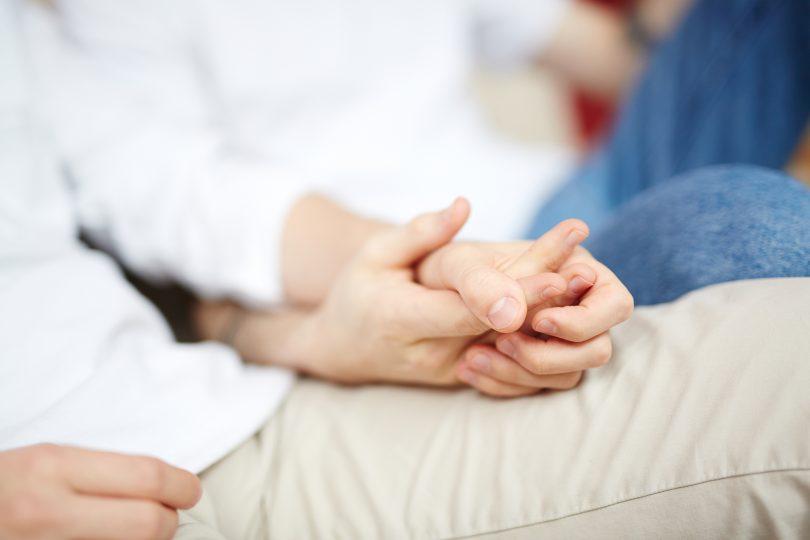According to data from federal studies, on average, most people have about 3 days a month where they experience poor mental health.
It’s those days when you have zero motivation to get up, you can’t even muster the energy to do things you really like to do, you turn down an invite for dinner at the newest restaurant in town, you ignore phone calls and texts from friends. It’s when you just want to be alone, have trouble sleeping, maybe even indulge in some illegal substances or more alcohol than you should to help ease the pain.
But if you’re a part of the local LGBT community? According to a health needs assessment conducted by faculty and students at the Medical College of Georgia at Augusta University, individuals in Richmond and Columbia counties report more than twice that, at about 8 days. And if you’re transgender? It’s about 13 to 15 days a month—just about half of every month.
“If you identify as LGBTQ, you have the same reasons that everyone else has for poor mental health, along with a unique set of minority stressors,” said Dr. Lara Stepleman, a psychologist at Augusta University Health who is also the LGBTQ information officer.
Those additional stressors could include:
- Not feeling socially connected to people who accept fully who you are
- Feeling unfavorable decisions are being made by others due to sexual orientation or gender identity
- Being harassed or bullied, especially for adolescents and young adults
The stress of hiding your identity in certain contexts, such as work or family
And it’s a corollary of this that risk of suicide in this community is also high. Around 30 percent of the LGBT individuals surveyed said they’d had suicidal thoughts during their lifetime and 18.5 had actually attempted suicide. Of those who identified as transgender, almost half reported a history of suicidal thoughts and nearly 35 percent had actually attempted.
When you need more than self-care
“It’s important to say that people who are sexual orientation or gender minorities can have fantastic mental health,” said Stepleman. “But the literature shows that as a group, they tend to have more poor mental health days than cisgender and heterosexual persons as a group.”
Self-care can go a long way to help boost happier feelings, from exercise or meditation to being out in nature or volunteering. “In terms of taking action, usually what we ask people is when you were doing best, what were you doing differently
than now?” said Stepleman. “They might say they were getting in 5,000 steps a day or socializing a couple times a week or tracking their eating. So we suggest picking one of those behaviors that is most doable and working that slowly back into your life. Then note the impact by tracking your mood. If it’s working, keep at it or add another one back in, or switch it out if it’s not.”
However, when you have ongoing symptoms that don’t improve with self-management, finding a mental health professional you’re comfortable with could be an important step—especially if you’ve had thoughts of suicide, if the stress and anxiety is harming your livelihood or your personal relationships or if you’re indulging in dangerous coping mechanisms like drug or alcohol abuse or self-harm.
You may want to start by searching for a provider who advertises himself or herself as “LGBTQ friendly” or as an “LGBTQ ally.” Then, it’s fine to call to let them know your background and ask specific questions about their experience in working with people from these communities—since some therapists have varying experience in sexual minorities, gender minorities or gender transitions. Also ask about their approach to working with people from these communities, and listen for words like “accepting” or “positive.”
When it comes to providers, you can choose from licensed professional counselors, psychologists or psychiatrists. Just know that while the first two focus on therapy, psychiatrists more commonly prescribe medication to help with anxiety and depression, although some may also offer psychotherapy as part of their practice. Not sure who you need? You can talk with your family physician about your concerns and get recommendations or see a therapist for an initial visit, who can collect a comprehensive assessment and then make a referral to a psychiatrist for medication if needed.
Finally, if you don’t have the support you need in your current social circles, look for community support groups or even groups at LBGTQ-friendly churches, both of which can offer formal or informal activities where you can connect with others. Can’t find a local group? Check out online support groups or discussion groups.
“We all have stressors in our lives that may lead us to need help,” said Stepleman. “But if you’re part of the LGBTQ community, it’s fair to say that both everyday stressors as well as sexual orientation and gender-specific ones can accumulate and become taxing on wellness. If you or those around you notice that there’s a change in your behavior, it’s important to take those first steps to help you feel better.”





